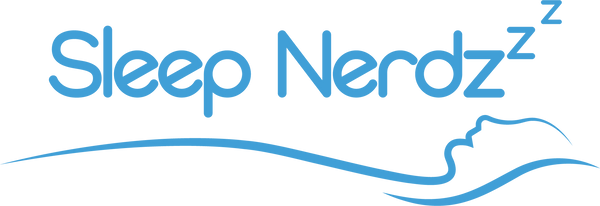Sleep Technology 2025: How Innovation Is Transforming the Way We Rest
In today’s fast-paced world, quality sleep is more essential than ever — yet increasingly elusive. According to the CDC, one in three adults isn’t getting enough sleep, sparking a surge in interest for advanced sleep technology. From AI-powered wearables to smart mattresses, these innovations are revolutionizing how we track, manage, and improve our nightly rest, helping people sleep deeper, recover faster, and wake up more refreshed.
Let’s explore the evolution of sleep technology, the science behind today’s most advanced tools, and why 2025 is the year to make smart sleep part of your health routine.
The Evolution of Sleep Technology
Sleep tech has come a long way since the days of simple mechanical alarm clocks. The late 1990s and early 2000s saw the rise of wearable fitness trackers that introduced basic sleep monitoring features. While primitive by today’s standards, they paved the way for highly personalized, AI-driven solutions like smart rings, smart mattress toppers, and intelligent sleep apps that adapt to your body’s unique needs.
How AI & Smart Sensors Enhance Sleep
Modern sleep devices combine artificial intelligence with advanced sensors to optimize your rest in real time. For example, the ZenRing Smart Ring tracks HRV, oxygen saturation, body temperature, and movement, then provides actionable insights like ideal bedtimes or relaxation exercises.
Similarly, the Guardian Mattress Topper uses temperature and pressure sensors to adjust firmness and climate control automatically, even integrating with your smart home system to create the perfect sleep environment.
The Power of Modern Sleep Trackers
Today’s sleep trackers go far beyond counting hours in bed. They measure:
- Sleep stages (light, deep, REM)
- Heart rate & heart rate variability (HRV)
- Respiratory rate & oxygen saturation
- Body temperature trends
With detailed reports and smart alarms that wake you during light sleep phases, these devices help you identify patterns, fix problem areas, and improve both nighttime rest and daytime energy.
High-Tech Solutions for Sleep Disorders
Insomnia
AI-guided sound therapy and wearable biofeedback tools promote relaxation and apply CBT-I principles to help you fall asleep faster.
Sleep Apnea
Advanced wearables detect breathing irregularities and oxygen drops — enabling early detection without an expensive overnight sleep study.
Environmental Optimization
Smart toppers and beds regulate temperature, reduce noise disruption, and adjust firmness in real time for uninterrupted sleep.
Circadian Rhythm Regulation
Light-based devices mimic natural sunrise and sunset cycles, supporting healthy melatonin production and reducing jet lag or shift work fatigue.
The Future of Sleep Tech
- Closed-loop systems — fully integrated mattresses, lighting, HVAC, and wearables.
- Neurotechnology — brainwave-based stimulation to improve deep sleep.
- Predictive health — detecting early signs of chronic illness through sleep data.
- AI sleep coaching — personalized, real-time wellness guidance.
- Accessible pricing — advanced devices for every budget.
Sleep Nerdz: Leading the Sleep Technology Movement
At Sleep Nerdz, we believe better sleep leads to a better life. Our flagship products include:
- ZenRing Smart Ring — tracks key metrics and delivers personalized insights.
- Guardian Mattress Topper — adaptive firmness and climate control for optimal rest.
- Advanced Sleep Trackers — integrate seamlessly into your lifestyle to monitor, report, and improve your sleep health.
Whether you’re battling insomnia, optimizing recovery, or simply aiming for deeper rest, Sleep Nerdz has the tools to help you sleep smarter.
Ready to transform your nights? Explore our full range of sleep technology and wake up to the difference of smarter sleep.

